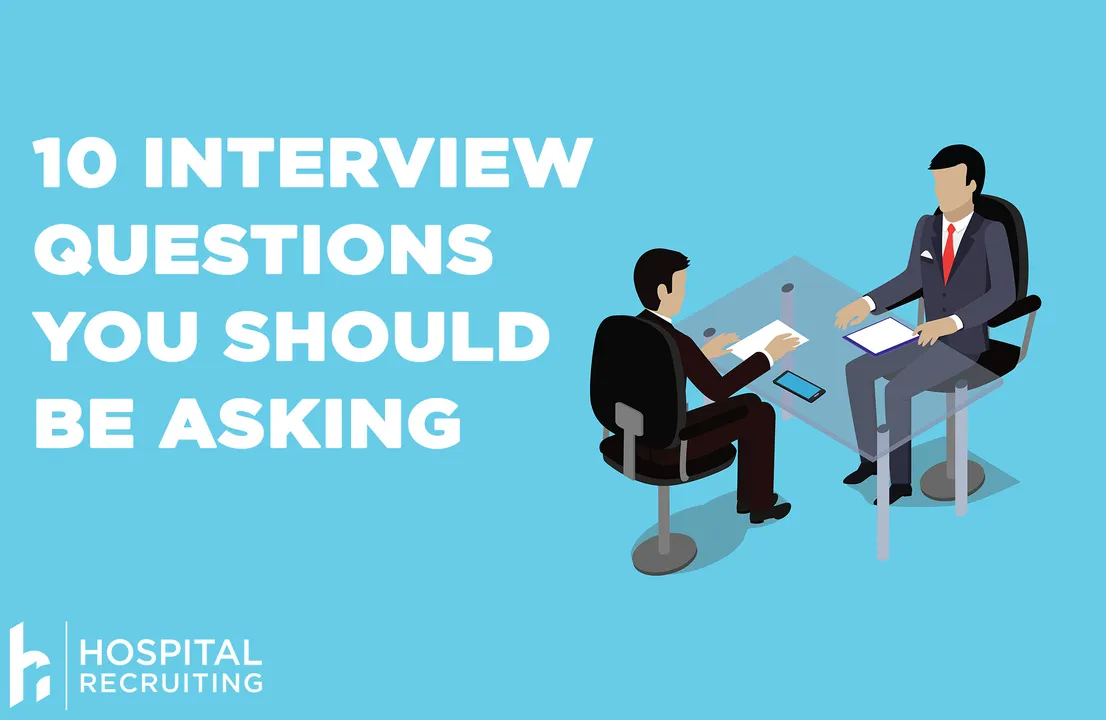10 Questions You Should Ask During Your Interview

While most people think of the interview process as a time to answer questions in a way that demonstrates your acumen and ability to succeed in the role, it is also a time for you to ask questions. Some people make the mistake of thinking that asking questions at the end of the interview is unimportant when it is actually a vital part of the interview process.
When interviewing, the questions that you ask serve two key purposes: they provide you a way to showcase your ability both to ask insightful questions and to gather important data. Asking the right question is an important part of most jobs, and your interviewer will learn more about you by the questions that you ask. The questions you ask also allow you, as an interviewee, to learn more about the company.
Balance is key when asking questions at the end of the interview. You will need to know how aspects of the job impact you but want to avoid appearing primarily interested in what you can get out of the job. You will also want to avoid looking like you don’t know anything about the company or role while still learning as much as you can.
We have developed a list of some of the best questions that you can ask during your interview, depending on the situation:
Can you tell me more about the daily responsibilities of the role?
This can help you to understand more about the details of the role. Often, only general information about a role is provided, making it important to learn about the day-to-day aspects of the role.
Where does the company see itself in five years?
Opportunities for promotion, job security, and even your professional reputation all depend on the company you work for. Understanding the company’s goals and vision for the future will give you a good idea of if the company is growth-focused or if it is trying to overcome obstacles to continue surviving.
What do you personally like about working for this company?
Phrasing this question toward the interviewer themselves avoids the more generic answer that you will get if you ask, “What is good about working for the company?” By asking the interviewer what they personally like about the company, it will give you more insight into what motivates your interviewer, as well as provide you with a more specific example of what is good about working for them.
What do you personally find most challenging about working for this company?
This question is very important, as it may provide you with insight into what your interviewer thinks is challenging about working for the company. The interviewer is likely to dance around the topic, just as you might when asked about your greatest weakness. It will probably be necessary to follow up to get a good answer to this question, but the effort will be worth it.
What one word would best describe the company’s culture?
Company culture is something that is important to understand, but one that your interviewer will likely have a well-rehearsed description for. Asking them to condense it down to a single word will help you understand the essence of the company’s culture.
What is the last change your department has made based on staff input?
This is an important question, as it will provide you with a good idea of how much your potential employer values the input of their employees. Asking for a specific example and finding out how long ago it occurred will help you to evaluate how often and to what extent your potential employer will value your input in your new position.
How do you help staff to grow personally?
While it’s easy to get focused on the role for which you are interviewing, it is important to think about how you will grow professionally and how the position you are interviewing for will help with this. Understanding if your new boss will be focused on helping you grow professionally is very important.
How do you evaluate success in this role?
This question is important to help you understand what will be expected of you but also helps improve how your interviewer perceives you. Asking this question demonstrates that you are committed to succeeding in this role and adding value to the company.
Why did the last person leave this position?
Unless you are interviewing for a new position, the position you are interviewing for was filled by someone who either chose to leave it or was removed from it. Understanding why the position is empty can be important, as it may provide you with insights into challenges that you could face working for the company.
What is the compensation for this job?
The ultimate reason that almost everyone works is to make a living. Getting a new job is, at its core, a financial transaction, and it is very reasonable to ask about the compensation for the job. If the interviewer has not discussed compensation, then the question time during the interview is an appropriate time to begin the discussion.
Every interview will be different and asking all ten of these questions would probably be a bit much. They can, however, serve as a guide and help give you ideas about what questions will help you to stand out and give you information to help you make the right decisions during your interview process.
Related Posts
